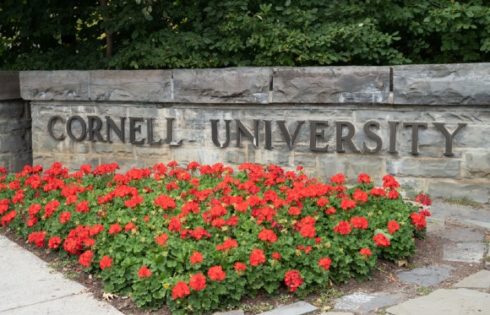
Panel member says federal law ‘requires’ low evidence standard, but that’s in dispute
The University of Oregon appears to be snubbing its own nationally recognized expert in a new report that recommends how to deal with sexual assault on campus.
The President’s Review Panel, set up in the wake of sexual assault allegations against three men’s basketball players, also justifies a lower evidentiary standard for allegations based on federal guidance that may not be legally binding.
Much of the report recommends actions that other schools have taken in revamping sexual-assault response policies, such as improving bystander education, expanding self-defense classes and adding more administrators to address sexual assault.
The panel also recommends changes that appear to answer critics of disciplinary processes that disfavor accused students.
One recommendation is to “adopt a clear and fair adjudication process” for sexual-misconduct allegations so that all participants have “a full and fair opportunity … in an administrative conference to present information and respond to information presented by the other side.”
The panel recommends, however, that the school stick with the preponderance-of-evidence standard – known casually as “more likely than not” – and limit the participation of students’ advisers in the adjudication process so that “they do not obstruct the proceedings.”
The report also singles out Greek life and student-athletes for more prevention education, potential sanctions and increased reporting oversight, but does not at all examine faculty-student sexual misconduct: The panel simply agrees with the faculty senate that such policies “should be reviewed and improved.”
The panel suggests creating a “central office” or designating a “senior executive” to coordinate and oversee sexual assault programs and implement a “comprehensive strategic plan.”
Background checks for unrelated violations
Some recommendations are vague and broadly defined, leaving open the possibility that students could be deprived of due process.
For example, a “prevention” recommendation says the school should “[e]nsure a process for follow-up on a student’s background when it comes to the attention of the UO that the student or applicant has violated a student conduct code or criminal law.”
There’s no indication that the alleged code or criminal violation must be sexual in nature: “When the UO obtains information that gives it reasonable cause” to believe that violation “might make the student a danger” to the community, the school should try to get information about the violation “to the extent that is legally possible” and then act “to ensure the safety of the campus.”
David Schuman, a member of the panel and retired judge who is returning to the UO law school next year, told The College Fix that some of the recommendations were kept vague in order to give the university flexibility in implementation.
“The nature of the background check [on the accused student], what could trigger it, and the qualifications of investigators, are left to the discretion of campus officials,” Schuman wrote in an email.
School wants a ‘responsibly designed’ survey
The biggest surprise of the report may be that the panel recommends ignoring a “campus climate survey” on sexual assault that one of its own professors designed and has completed.
The Fix previously reported that the survey by Jennifer Freyd, a psychology professor and sexual-violence expert consulted by the White House, could have produced skewed results because of its composition of respondents and how it defined assault. It included the explosive claim that nearly half of campus sorority women had been victims of “non-consensual sexual contact.”
 The panel’s description of Freyd’s survey – or rather, what it lacks – is telling.
The panel’s description of Freyd’s survey – or rather, what it lacks – is telling.
“We are aware that a campus climate survey has recently been completed at the UO,” the report reads. “We applaud such efforts. We believe that regular and inclusive campus climate surveys should be conducted.”
The recommendation continues: “It is also important for the University to participate in a carefully and responsibly designed and administered national survey that produces comparative data, in the event that such a survey is developed, in order to understand the effectiveness of its practices relative to peer institutions.”
Freyd has been publicly feuding with the university since at least June, when it first turned down her proposal for a climate survey, the Eugene Register Guard reported.
School officials said Freyd’s “personal opinions” and the risk of “confirmation bias” could produce an unreliable survey. Freyd is a vocal critic of UO’s handling of sexual assault and filed a federal Clery Act complaint against the school.
Freyd wrote to trustees and the school’s general counsel to accuse university officials of “insulting” her reputation, the Huffington Post reported.
Shouldn’t try to ‘mirror a judicial proceeding’
The panel also wants to add more transparency to the hearing process.
The report calls for more training of investigators and giving students “prompt” information about “how information obtained in the investigation may be used.” Students should also “receive a report on the outcome of the investigation as soon as possible.”
But the panel rejects changing the adjudication process to “mirror a judicial proceeding,” saying that conduct proceedings and court trials “have significantly different purposes.”
The report recommends staging a hearing before a “neutral decision-maker,” as well as “equal access to legal representation” and the “same rights to seek review of the decision” by all participants.
To make proceedings fairer, the report suggests allowing both the accused and the accuser to present information, “respond to information” and allowing each side to respond to a copy of the administrator’s findings.
The ‘preponderance’ standard: Recommended or legally required?
Despite adding more transparency and chances for appeals, the panel wants to tilt the process against students accused of sexual assault, in contrast to the university’s earlier treatment of them.
The university previously used the “more rigorous clear and convincing standard” of evidence for cases that lead to expulsion, such as sexual assault, the report said.
But UO recently changed its evidentiary standard to “preponderance” in all circumstances, and that should continue because the Department of Education’s Office for Civil Rights “recommends” that lower standard, the panel said.
 Preponderance is “a good compromise between the ‘beyond a reasonable doubt’ standard in criminal prosecutions and the ‘substantial evidence’ standard in most administrative hearings,” said Schuman, the panel member. Going beyond the report’s language, he said federal law “requires” the preponderance standard.
Preponderance is “a good compromise between the ‘beyond a reasonable doubt’ standard in criminal prosecutions and the ‘substantial evidence’ standard in most administrative hearings,” said Schuman, the panel member. Going beyond the report’s language, he said federal law “requires” the preponderance standard.
That’s the subject of an active legal dispute, as The College Fix previously reported.
The University of Massachusetts-Amherst, in response to an accused student’s Title IX lawsuit, claims that the civil rights office’s 2011 “Dear Colleague” letter to schools is not legally enforceable. That letter says schools “must” use preponderance “to be consistent with Title IX standards.”
The dispute has to do with the Office for Civil Rights ignoring Administrative Procedure Act requirements when it issued the letter.
The Foundation for Individual Rights in Education said at the time: “When an agency imposes new obligations upon the public without subjecting it to public notice and comment, the new rules aren’t legally binding or lawfully enforceable.”
‘Gender inclusive bathrooms’ floated
Buried near the end of the report, the panel hints at a policy change associated with LGBT activists.
The panel recommends developing “approaches that provide additional support for the distinct challenges and circumstances faced by” LGBTQIA students, such as fear of reporting same-sex assault. Though it stops short of recommending that the university implement “gender inclusive bathrooms,” the panel said it received “a number of suggestions” to do so.
The campus LGBT Center did not return requests for comment.
The university is also cagey on explaining the report.
Asked for specifics on the proposed background checks of accused students, the background of investigators, whether attorneys can represent students and why expulsion cases should now be subject to a lower evidentiary standard, a spokeswoman told The Fix that those issues “have not been addressed” because “these are only recommendations at this point.”
College Fix reporter Matt Lamb is a student at Loyola University-Chicago.
Like The College Fix on Facebook / Follow us on Twitter
IMAGE: Michael Li/Flickr, Jennifer Freyd, University of Oregon





Please join the conversation about our stories on Facebook, Twitter, Instagram, Reddit, MeWe, Rumble, Gab, Minds and Gettr.